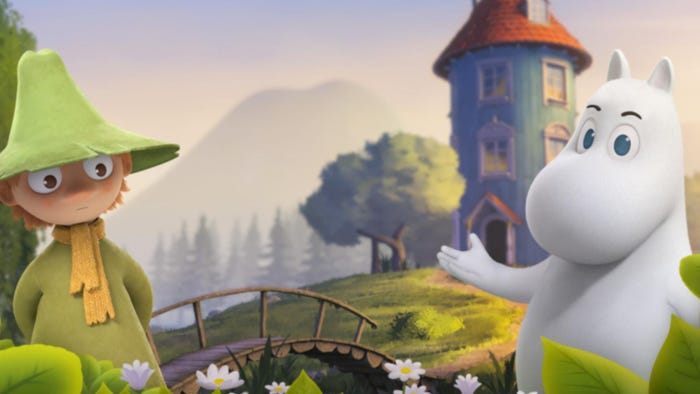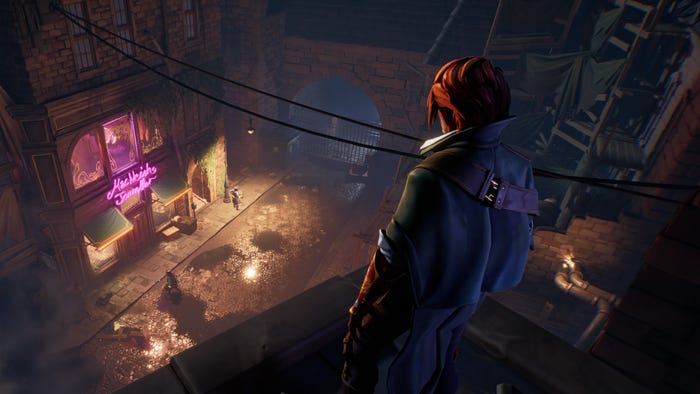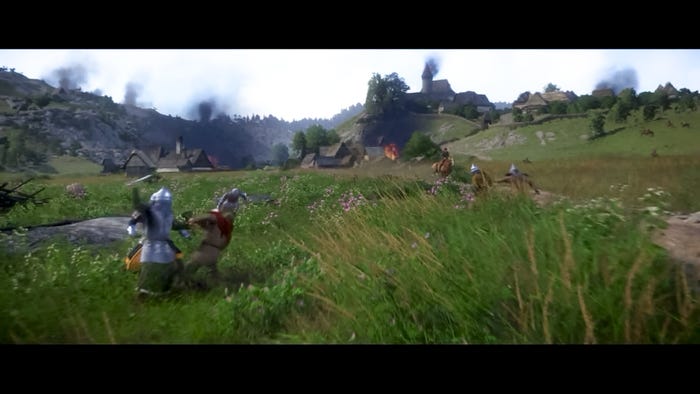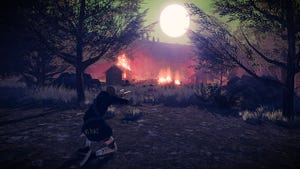
Featured Blog | This community-written post highlights the best of what the game industry has to offer. Read more like it on the Game Developer Blogs.
A lot of people with great experience get cycled out of the video game industry for good reason: they're overwhelmed. I offer a possible solution to avoid this problem.

I'm an Isaac Asimov fan. I've enjoyed his books since childhood and they remain as fun to read today as they were then, even though I chuckle more when I see that positronic robots were developed in the 1980s and 1990s. That'd be grand, yes? Alas, not yet. Most likely if you're into science fiction novels you've read at least one Asimov book. If you haven't, go pick one up.
One of Asimov's most well known series' is the "Foundation" series, which I still think would make a great movie series or TV show (perhaps they're being made as I type this). Heavy in dialogue they present a formidable challenge to translate to the big screen, let alone a game setting. But I digress.
One of the major characters in the first book, Hari Seldon, introduces a new science called "Psychohistory"; the study and prediction of human behavior in large groups. He makes a very good point about the decline of a vast galactic empire in the far flung future, and I apologize with my feeble attempt at paraphrasing: As mankind becomes more populated, it becomes more specialized. As it becomes more specialized, it gets weaker.
Euh... ... guess what? He's absolutely right, and we're not even a thousand years in the future yet. This is true across the board for just about everything, really. The human brain and its capacity for processing data is not evolving nearly as fast as the collective efforts of humanity. Not by a longshot.
Easy example: a true game enthusiast in the 80s could play (perhaps not buy) every game released and pick their favorites to spend serious time with. Not so these days. Find me a society of gamers who play everything and I have a bridge to sell you. But it gets better.
Find me a single person who can wax lyrical about every game genre developed in the last 5 years, from its development woes to its mechanics to its production interdependencies, and I'll take you to dinner. I doubt even the best Gama journalist can write an article about all the facets. That's probably why there's more than one.
So when assaulted by daily news and reports of this company getting a huge investment, that company developing a new hit, a study of this, thousands of layoffs there, there's more that you can do than simply limit what you read or filter your feeds more.
What do YOU like?
Oftentimes it's harder to sit down and figure out what it is you enjoy doing, whether it be working on games or playing them. At least you can start with those two categories.
Working on games
For the industry insider, particularly those in crunch mode, you're not doing a whole lot of playing. So this part of your life has skewed in a direction that limits your input and increases your output. However, as we've all seen doing this too much burns you out, and free time can easily be taken up by things like eating or simply dozing off for a few minutes.
I think we can safely say that a very few developers actually enjoy crunch (I know a few and yes, they may be workhorses and talented but they're also stark raving mad. I crunched for 80-90 hour weeks for a year at Midway and will never do that kind of crunch again, rather it taught me to focus my time more effectively for the 8-10 hours I'm at work).
But how to identify what you like about work otherwise is tougher. Here's some questions to ask, and try not to imagine this as the back of a damned McDonald's "Free Big Mac" questionnaire or one of those horrible 2 hour interviews you get for 40 bucks at the mall. And yes, you'd be surprised how little these questions really get asked by people who think they've got a ton of experience:
You just attended a meeting. Did you feel the meeting was helpful to you? If not, why not? What might have made it helpful to you?
You're running into a brick wall. You have a texture, a data table, or a bizdev call that just isn't working out. If you can't get help to fix it, is there something else more productive that might work?
Most likely the most enjoyable thing you do is seeing your work come to fruition when all the pieces fit together perfectly. Only repeated drudge-work called iteration can accomplish this, right? Wrong. If your team isn't sandboxing your concepts quickly even outside the overall gameplay spec, you're not getting vital feedback you need to avoid wasting everyone else's time.
There are creative people, and there are not so creative people. Not being a fountain of ideas on a daily basis is okay. But being surrounded by creative people often helps the creative output of an entire group. There are people who work in spurts, and people who get small things done on a daily basis. What kind of person are you? Does your manager both know and understand your work habits?
Playing games
If you're not crunching though, you're in luck. There's a myriad of sites that you can visit such as Kongregate that have a variety of free to play games for short periods of time. There are also free to play MMOs, but of course those can last longer and also take longer to figure out if you enjoy or not.
Being honest, the older you are and more you've been in the industry, even in QA, you don't play games as often as you did. If you're lucky, you play a few hours a day. If you're average, you get in maybe one a day. I admit I'm more jaded than most, with Bioshock being the only game I played lately that held my attention longer than five hours, but of course gameplay times are cut drastically these days from 60+ hours for an RPG to 15-20 tops. Unless you're Dragon Age. But I'm betting if the character progression, questing and story weren't top notch, you wouldn't last three hours in that game, let alone 120.
A good deal of your time has to do with your lifestyle as has been said many times before. Family man, less gameplay time for things like Dead Space than for Wii Sports (most likely). Although I did spend a few hours a night trying my best to get through Doom 3 with the lights off and my headphones on a few months ago. Yes, yes, old hat as far as what's current, but holy cow was it scary. Too bad it got old fast. Time to uninstall poor old Carmack's baby and plop in Newell's again.
This all leads to the same point: the difficulty to create something compelling creates a climate where you have a mountain of mediocre and a cream layer, much the same as the music industry, film industry, or any other entertainment industry with a low barrier to entry and a high bar for AAA.
If you're creating a small game, it is far more difficult to create an enjoyable experience because you don't have as much time to build up interest. You need to present a winner within a few seconds. If you're creating a vast story driven RPG, you can do it cheaply, but run the risk of boring the (average) player to tears without solid storytelling and high quality production values to sell that story.
But, how many people played Machinarium as well as Dragon Age? Not many I'll wager, and in my humble opinion both are just as playworthy. So picking all these is a tougher kettle of fish than even identifying your own personal preferences of game types once you have a chance to sample from the ever growing buffet.
Really for me it comes down to word of mouth from my industry colleagues, and to be honest a neat idea might be to collect ratings from them and make a meta-score out of them updated daily so people in and out of the industry can see what the insiders are enjoying.
Beyond that, simply watch "Release This" and GameRankings, take that quivering hand, muster up the strength and grab the game you feel you'll enjoy the most based on your gut and what you've enjoyed before. Heck, Castlevania never fails to please does it? I know I'll be buying the next one...
About the Author(s)
You May Also Like








